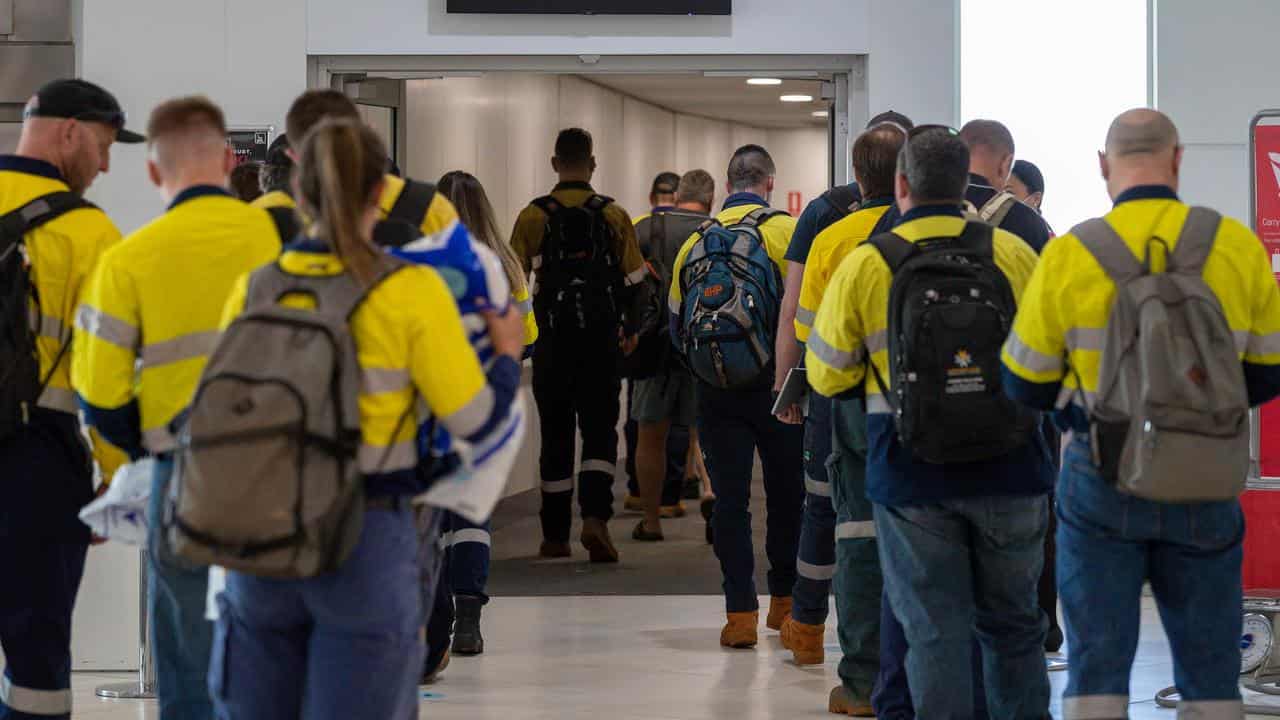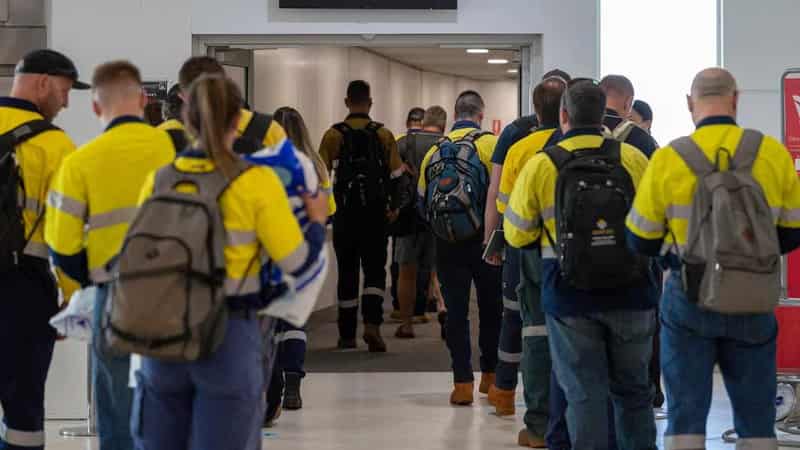
Flights have been disrupted for thousands of regional airline passengers and fly in, fly out workers after pilots working for a Qantas subsidiary walked off the job.
Qantas Group was forced to re-book travellers onto Jetstar, Qantas and charter flights on Thursday after Network Aviation cancelled 35 flights due to the protected 24-hour strike over stalled wage negotiations.
The affected travellers were offered a range of options including a rescheduled flight, a refund or a credit.
About 95 per cent of regular customers and about 70 per cent of charter customers would take to the air on Thursday, the airline said.
The Australian Federation of Air Pilots said its members working for Network Aviation and QantasLink in Western Australia voted to stop work.
The union apologised to travellers for the disruptions and said its members were disappointed they'd been forced to take industrial action.
"Although we're taking this action, the last day of action was over six months ago so we don't do this lightly," senior industrial officer Chris Aikens told AAP.
"When you've had a company that's walked away from the negotiating table, we're left with no option and we feel for the travelling public because we don't want to do this."
Premier Roger Cook said the flight disruptions were concerning.
"I'm really pleased that the impact on individual customers has been as small as possible but we urge the parties to sit down and resolve these issues," he told reporters.
He said regional flights were "fundamental to keeping our economy going and to keeping our communities connected".
"We need these air services to be available so that we can get workers in and out of our important resource of industries."
The pilots' federation has been negotiating an enterprise agreement with Qantas to replace their previous pay deal, which expired in 2020.
The union said many of the terms and conditions it members were seeking were standard for pilots employed in other parts of Qantas.
“The AFAP has been genuinely negotiating and trying to reach an agreement with Qantas management but the company remains unwilling to revisit its inflexible wages policy," Mr Aikens said.
"They're not out-of-this-world type claims, these are just bog-standard kind of pilot conditions."
Network Aviation said was disappointing that the pilots' union had chosen to take industrial action and disrupt flights and travellers.
"We know that this disruption is frustrating for customers and we appreciate everyone's patience," chief operating officer Trevor Worgan said on Wednesday.
The airline said the pilots had previously been offered and rejected pay increases of more than 25 per cent plus yearly three per cent increases, new allowances and greater roster protections.
It said it made an intractable bargaining application to the Fair Work Commission on Monday to help establish a new enterprise agreement with its pilots to break the deadlock.
"Unfortunately given the impasse, we have been left with no other option but to seek arbitration in the Fair Work Commission," Mr Worgan said.
Mr Aikens refuted the airline's claim, saying the 25 per cent pay increase was not offered to all pilots and was only applicable to those being paid well below award rates.
"The 25 per cent is for pilots who have fallen so far below the award that it gets them back up to some kind of parity and it's not across the board," he said.
He also took aim at the proposed annual three per cent pay increase and said it wouldn't keep up with inflation.
Network Aviation pilots walked off the job over pay negotiations for 24 hours in early October, causing more than 40 flights to and from regional towns and mine sites to be cancelled.
More than 90 per cent of its 200-plus pilots are members of the pilots federation.









